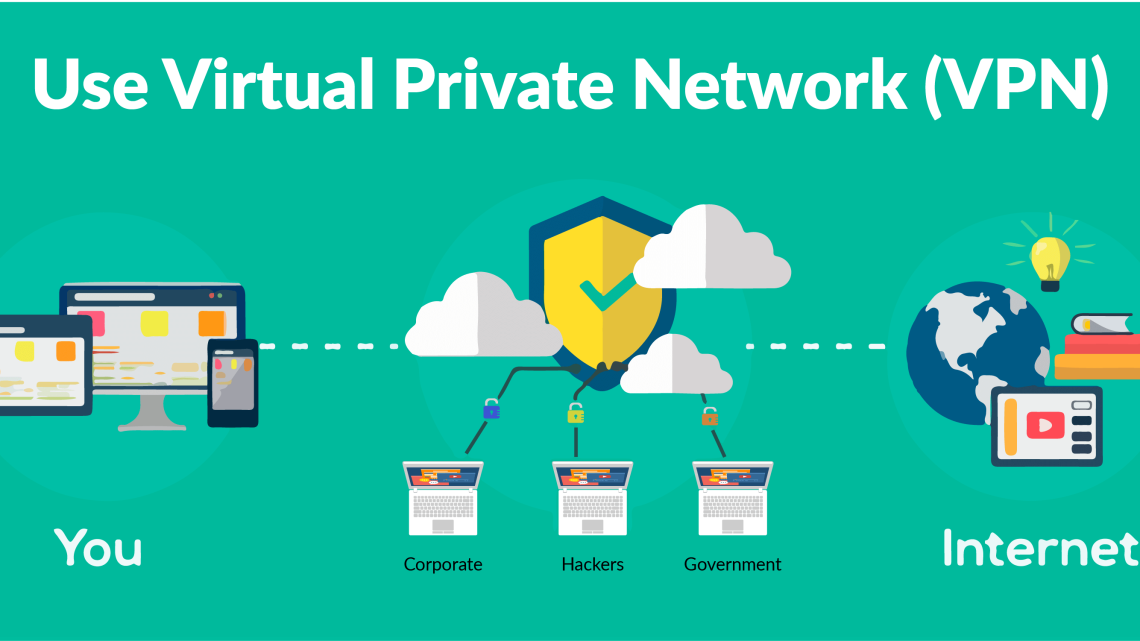
How to stay safe online: A guide for everyone
December 7, 2022Keeping yourself safe on the web seems like a huge task. But it’s not necessarily necessary. The house locks when the burglar wants to keep his or her property secure. The bicycle lock prevents your bicycle from being taken away. When it’s important to safeguard valuables, then it’s worth it. How should you safeguard my personal information online? The following are our most valuable tips for ensuring that your Internet safety can last the longest. Are you interested in safety topics on the internet if you don’t know what they do? Please click on the button below to access a page of information. It covers various cybersecurity topics and covers the basics most people have not considered when they think of online security issues.
Is online banking safe? Tips for How to Bank Safely Online?
Online and mobile bank services can provide an easier way of managing financial transactions and a safe alternative to traditional banking systems. Online banking accounts require a secure password. Hackers are attempting to get in touch with your personal data and your accounts are required to keep it safe and secure. It’s equally important to select a reputable banking institution. Find banks that are insured by the Federal Reserve. FDIC insurance provides the industry standard for proving bank legitimacy. Learn the most efficient methods of making a secure payment via the internet and offline.
How to protect your kids from online predators?
How can one identify an online prey that is in danger by identifying the online prey and detecting its activity? Give examples of people who are uncomfortable when talking to others. Tell us about how online communication works. Talk about recognizing the signs of trouble and asking for help. 2. Re-install the digital camera controls on each smartphone. Take care that you do not allow children to upload images without permission. Monitor online activity: Keep computers in common areas, limit screen time, set up shared email accounts, and install parental controls (such as filters or apps).
How to Avoid Identity Theft Online: 4 Internet Safety Tips
Just observing your privacy online can help you. Adding a security layer could simply involve monitoring the accounts of a person or company to look for unauthorized activities, or removing confidential material. Sometimes data breaches cannot be hacked by us, such as retailer or company hacking attacks. We must trust those who will give us personal data. We encourage people to do their best in protecting their data. Privacy is a problem for most digital users, so users must remain cautious. Make certain that identity thieves are not stealing information about you.
Use caution while traveling
During travel, your identity is tampered with by certain types of fraud. You may be traveling abroad and need security measures. Tell your banking institution where you’re going and how long you’re going and get your mail. When the bill is due during your trip, you will need to make the necessary payments before your departure. Throughout your trip make sure to take additional precautions to protect your data.
Check your credit report
Keep your finances in mind to avoid anyone stealing your financial information. If you’ve been looking for credit reports you can ask a credit bureau to review it periodically. Credit freezing is a good way to help protect your credit against identity theft or fraud. Starting in September 2018, you don’t need to spend money to freeze your credit.
Keep an eye out for unusual statements or bills
Keep a close watch over statements, receipts, and bills. When you subscribe to e-mails you are likely to lose it. A regular review helps you see what suspicious activity has occurred to your account. When you’ve become an unsecured person, you need to find out what is happening immediately by calling the banks for support.
Shred documents containing financial or personal information
Keep your documents away from landfills! If you’d like to take away anything you have with you please contact a paper shredder or shredding company. Check our shredding guide and examine shredding documents like:
Tell me the importance of cybersecurity.
Modernity is closely linked to internet technology. Every day, virtually any job is possible online, but the majority of people own multiple gadgets such as smartphones, tablets, smartwatches, and more. The more information a person has available online the better the chances that a criminal can get in touch with you and steal your information. Cybersecurity can be a big concern for everyone, regardless of age and life stage, but the problem may be especially pronounced among certain vulnerable groups including teens and older.
Internet safety for children
Parents, please read it. How Can Parents Protect Their Children Online? The Internet can be an interesting and educational tool, with children urged to only watch age-appropriate videos, images, or information. Parent control and filtering are good starting points. Search engines offer a safe search feature that filters objectionable content, and they offer specialized searches to help children. Phones have parental controls and an app designed to protect children online. However, some hackers attempt to bypass censoring measures by using their websites and networks.
How to Protect Seniors Online?
Senior citizens have an extremely low risk of scams on the Internet. Scams exploit the elderly because they can easily accumulate money and assets from their lives. A study has shown that older people who have experienced e-commerce fraud are less likely to report fraud. To stop scammers targeting seniors, we want to ensure seniors know about common cybersecurity techniques.
Internet safety for teens
When children get older, their internet is accessed without supervision from adults. We encourage parents to have conversations to help adolescents develop good Internet habits. Here are some good online safety tips for adolescents that are helpful for young people. The best way to protect children from cyberbullying starts by teaching basic internet safety tips early.
Top online threats for kids
Cyber security is an important issue for children and teens. Cyberbullies: Nearly a quarter of children between the ages of 11 and 14 have suffered cyberbullying. Cyberbullying refers to violent, threat,ening or malicious behavior involving electronic devices such as email messages. In cyberbullying, more girls say they’ve experienced online harassment than any other. Adult Internet predatory behavior is considered to be sexual or abusive by adult Internet users.
Protect your identity online: 3 types of online scams to avoid
Sometimes online criminals use a manipulation technique to obtain information about individuals’ personal data. Instead, they use tricks to try to take over a person’s identity by impersonating their Facebook or Twitter accounts or trying to steal their password. It could also happen by downloading malware and using a smear code to steal your personal information. List the main types of online scams you can avoid:
Text messages scams
SMS scams may combine with other online frauds such as phishing links, gossip click-baiting, and other fraudulent ways. Banks, governments, organizations, and other legitimate companies will never ask you for financial and personal information through SMS. Never post confidential personal information on unsecured messaging sites. Please send your personal information to legitimate websites.
Social media scams
Online swindlers constantly come up with different methods of manipulating people. Keep an eye out for fake websites like catfish, fake news and fake job offers, and fake website scammers. One good rule of thumb is to ensure that all websites are reputable and secure. Never open any links to an online site without being able to verify the site.
Online dating scams
Internet romance scammers may attempt to manipulate victims to gain access to their own private information. The Internet is a very popular site for online dating scams and research shows older people are particularly impacted. Please educate senior members on how to avoid online romance scammers.
How can I protect my children from cyberbullying?
How can a person detect cyber-bullying activity? Give your kids a little guidance on how an online bully will behave at first. Discuss this: Talk to kids. Tell us how the internet is affected by bullying. Make your children aware of the fact you can talk to them in case they feel uncomfortable in your presence. Watch out: Install the computer inside a common room. Watch the screen.
Tell me the importance of cyber security.
Cyber-security refers to technology processes that help prevent unauthorized access. Every day the cyber world plays out despite the lack of knowledge. The next section will discuss how to describe cyber security and its importance. In addition, we will discuss cybersecurity trends and tips for protecting your privacy online.
Cybersecurity & Online Safety Buzzwords To Know
It feels like wading through the technical jargon to learn about Internet security. There’s a lot about cybersecurity that you can learn, but we’ll share just some of our popular cybersecurity terms.
How to protect your kids from inappropriate online content?
Tell them how to navigate the web and when to ask adults to do it. Let children understand the dangers of e-mail and direct messaging from various sources. Show some examples of inadvertent site popup ads and how to use those. Explain email protection. Tell an adult about their downloading.
More resources to help with online safety for kids
It’s a great starting point to learn how to protect your kids from online danger. But cyber attacks change continuously and cybercriminals get more sophisticated. This is our recommended resource list for preparing ahead of time.
Teaching children about Internet safety
The Internet is an amazing resource for learning, shopping, playing games, or talking to people you know. Unfortunately, there are many predatory online users. For a child to remain safe online, it is important to know all possible risks. Some children feel confident in their internet safety. The reasons children risk being exposed are many different. Sometimes they don’t even know what their actions will mean, causing them to divulge more information about themselves. Kids are even more targeted by cyberbullying and predatory tactics.
About this tutorial
This tutorial was made especially for parents and guardians who want help with online safety for their children. You can also review our online security tutorials to understand the basics of online security. This tutorial contains links that you may have used to find further information. There are several activities video tutorial resources for kids and teens. You could give the resources out, or try to do it together with your kids. Learn the basics of internet use by checking out our online tutorial.
Understanding online dangers
You should learn the various dangers on the Internet and the best methods of preventing them. In addition, young people can often encounter inappropriate internet content such as pornography, or obscene words. It’s possible someone has been involved with cyberbullying online. It doesn’t mean the kids will have to deal with these threats. The dangers of using the web are helpful in guiding your child. Please see this interactive to understand what kind of risk children might face online.
Other types of dangers
When people use computers, they can experience eye strain, wrist strain or another injury. This could be prevented through restricting the amount of time children have at computer games. How Do You Avoid Accidents? Learn how to build safe workspaces in the Computer Basic tutorial. Why should parents be careful about restricting their kids’ use of the Internet? Internet access could have some benefits however, causing people to lose their offline life.
Cyberstalking
Cyberstalkers are any forms of harassment or threats which occur on the Internet. This can take place via email, text messages, and instant messaging. When an alleged criminal is a young adult this can sometimes be called cyber-bullying.
Piracy
Piracy is defined as illegally distributing copies of intellectual property. It may include songs, films, televised programs, and software. Sharing files is an easy idea and can lead some young people to be punished.
Phishing
Phishing is a type of scam in which scammers swindle people into stealing their private details. Often this consists of emails, text messages, and websites designed as if they’re coming from a legitimate company.
Malware
Malware is software that is meant to damage computers. There is malware and worms. Malware is often hidden in other programs, as well as infecting e-mail attachments.
Obscenity
The internet is filled with many things your children might not like including pornography, violence, and vulgar words.
Tips for safe online learning
It’s not a guarantee that your child has a safe place on the Internet. This list of best practices can help reduce online danger for children, no matter what platform they are using.
Protect personal information
This may become tricky in a child’s case involving identification for school work, and personal information must be protected carefully. Chances are your son has some sort of identifier in the school system. These types of IDs provide an easy way to protect your information in case it’s stolen or otherwise compromised. No one will be contacted for any of these reasons when identifying your child at school, in a list of posted grades, or online. You can also give the child a secure login to any courses, lectures, or homework you need.
Set up parental controls
There are no parental controls to protect children while learning. It already includes many useful applications for your mobile device’s hardware. Find this guide on maximizing the privacy and content-blocking features. We tested several parental management systems and picked our favorite. Almost all brands we recommend have downloadable versions that can be used to upgrade parental control without using a credit or debit card.
Make sure websites are secure
If you look ups. / s. / it is possible to check whether a site is secure. The web address of all websites is “HTTP” and the web address of the site is encrypted by the “HTTPS”. This also explains how site users are protecting their information when using it online. You should not use a website unless a website is written with an additional “s“ at the beginning of the address.
Keep everything updated
It sounds too simple to be useful, so it is one way to keep kids safe on the internet. Updates can seem like a hassle but if you are launching your new product a security patches update will address a number of different types of security problems. In addition, the older operating systems may render your privacy settings useless.
Steps to take if your child has been exposed to inappropriate content
Don’t get upset with your children and be calm and patient. Find the source of this material and block the links to dangerous sites.
What is the difference between digital safety and digital security?
Computer security refers to preventing unauthorized communications or information networks. The internet security of the consumer is the protection of its data-based content from malicious websites.
What is the main importance of digital safety?
Online security is a way for businesses to minimize their reliance on digital technologies and services. After the risk is managed, the Internet is largely unharmed and highly useful.
What are some examples of digital security?
Digital security means protecting online information, personal data, and other digital assets. The tools include websites and apps, antivirus software, mobile phones, mobile data, biometric devices, and secure devices.
What are examples of online safety?
Is it really worth registering for a free account? Keep your computer and mobile updated. Make sure the password has a solid structure. … Keep an eye on scammers who use malware. Keep the details of the person confidential. Hackers may use a person’s Facebook page to get their password. They will then use a password reset application. Keep your computer and phone updated. ‘. Set password settings! ‘ ” Keep an eye on the Phishing scams. … Don t forget your details. Hackers can find your password using Facebook accounts or other online sources.

